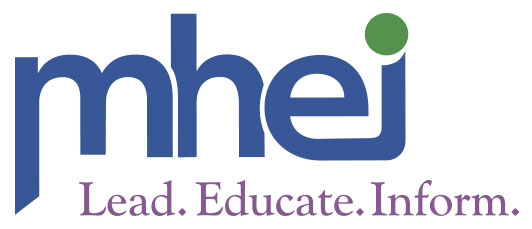I’ve read a number of leadership books over the past few decades and I never remember coming across a book or a chapter of a book focused on improving the lives of those you lead. Yes, it is probably assumed and/or buried in the ideas and actions of a good leader that the lives of those who follow that leader will be better for having been a part of the leader’s mission, vision and actions. Yet, I’m not convinced this idea should be kept buried or considered an “extra” when it comes to the good that a leader can do. In this case my leadership paradigm is one of business exists to serve people, not the other way around. And if this is true then the value business brings to the world and to human kind is the ability to make our lives, all lives, better. Isn’t that why most of us follow any particular leader – because we think we will be better off because of it? What I’m suggesting is that the really good leader should not be content with lives being better just because staff (and the leader) is employed and making money.
For months I’ve written that one of the great “leverages” that a leader has at her disposal is the ability to impact multiple areas with only one leadership action (e.g. walking down the hall and engaging a staff person can have a positive impact on the leader’s credibility with that staff as well as all staff who see her and, at the same time, perhaps positively influence staff engagement and, make the leader available for quality issues at the same time). Why then shouldn’t we, as leaders, purposely try to positively influence people’s lives while we are conducting the other business of leadership? All it takes is what we’ve been discussing all year long – thinking like a leader – and then putting ourselves into action.
While each individual staff person’s life is enhanced through a variety of means, each with a level of importance for that particular person, there are some commonalities that are true among most people and therefore offer a good place to start; I know I’m just one person in your life but I also know that you count on me to be there, to be consistent and it really helps if I’m kind as well. Being kind doesn’t have to mean friendly but it can mean that I talk with you in a sincere manner and generally are interested in your well-being. If you choose to share, I will listen….that’s my leadership action.
If you grew up like I did then you experienced times when other people, family perhaps, did not treat you with respect, did not treat you like an adult. You may still be experiencing some of that in your life. I don’t need to know what your personal life is really like but I can treat you like an adult. That doesn’t mean “hard” (you can handle it) or, “business-like” (man-up). It means with “respect.” Respect that you can make your own decisions in life (in fact you NEED to make your own decisions – that’s what being an adult is about) and you can accept the positive and negative consequences that come with making those decisions. First, I will give you the opportunity to make decisions for yourself. Second, when I do, I will accept your answer and not try to convince you otherwise. If I’ve done my job well to begin with I’ve allowed you the freedom to make those decisions within the parameters that protect the organization and others (patients, staff). Giving you this respect by allowing you to be an adult at work….that’s my leadership action.
Finally, in thinking like a leader I know that I have “power.” Sometimes this is easy to forget because my work life is often jumbled up with confusion, choices to make (sometimes neither option of which is good), and where you are trying to navigate one leader, I’m trying to work with multiple staff and there always seems to be someone who is in crisis. When it is time to use my power and make decisions that affect the organization and the people who work there I want to take time to put myself in their shoes, even if just for a moment, and then ask myself, “Would this be good for me if I was in their position?” And if the answer to that question is “no,” or, “maybe not,” then I just want to take a little bit more time and think about it again. With power comes great responsibility. Using that power wisely means I am thinking like a leader.
Mark Rulle is President of the Maryland Healthcare Education Institute.

